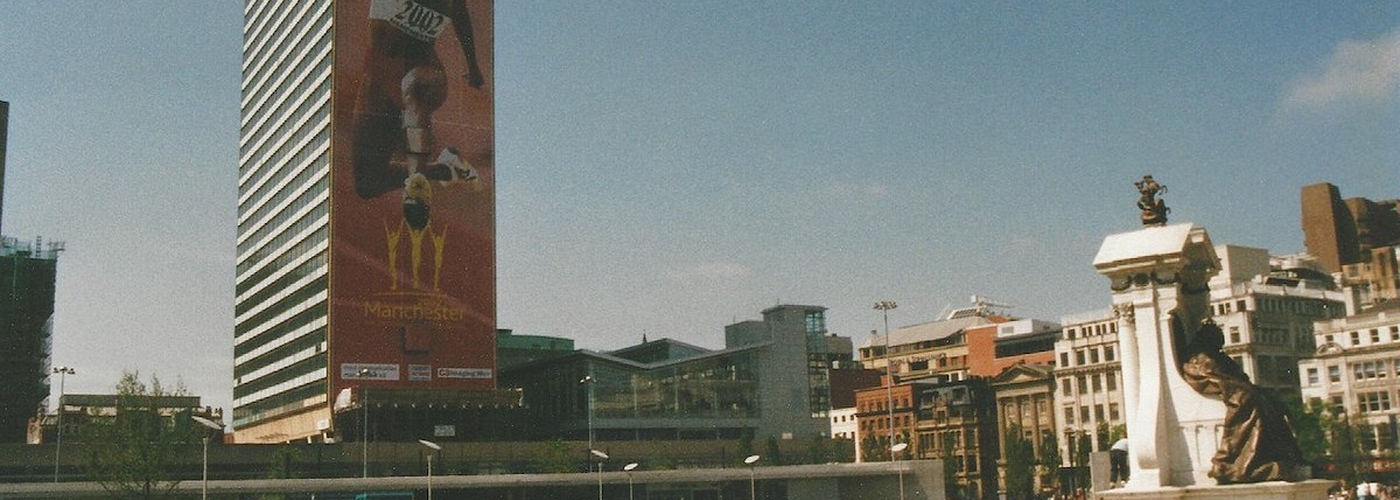Legacies, memories and an event that put Great Britain back on the sporting map
“The legacy, I would say, is bigger and better than any other multi-sports event around the world.”
Eamonn O’Rourke, former Deputy Head of Leisure at Manchester City Council says when asked about the Manchester 2002 Commonwealth Games.
When I ask him what his advice for Birmingham would be, he jokes it’s probably too late for advice. Momentum is key, he says. You have to build the momentum early and then harness it long after the event. Manchester did that and the results are there for all to see.
The momentum after the games needs investment. It has to have a dedicated strategy to maximise the momentum of the event.
Today marks the 20th anniversary of the 2002 (XVII) Commonwealth Games opening ceremony in Manchester. The games, which took place over nine days across Manchester, were at the time, the biggest multi-sport event the UK had seen since the 1948 summer Olympics in London. Eclipsed only by the London summer Olympic games in 2012.
Manchester’s Commonwealth games transformed not only the city itself but the UK’s standing in world sport and its suitability for large-scale events in the future. Without the Commonwealth Games in 2002 there would have been no London 2012.
Manchester 2002 provided a worldwide blueprint for major, multi-sport events and bucked the trend for doomed vanity projects. The Commonwealth Games itself owes a debt to Manchester, the city highlighting how important an event it can be, both as a regenerative tool but also as a serious sporting spectacle.
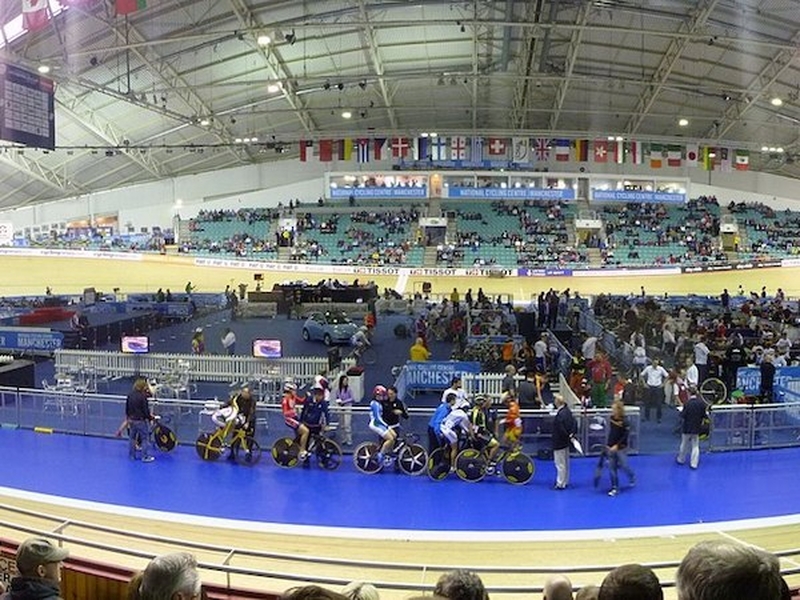
A legacy for the future, coaxing sports bodies to the city and no white elephants
Even before the games had begun, Eamonn had begun working with then leader of the council Graham Stringer to put in place initiatives to support sport in Manchester.
First came a package of grants supporting local teams, coaching and facilities development. The amounts were minimal but they initiated important relationships with sports clubs.
The council also looked at what sports the city was good at and formulated a strategy to ensure facilities would support sports clubs long after the games. Sports City became a focal point of this strategy. Pre and post games were given equal precedence. Eamonn points out that despite wishful thinking, research shows that most major sporting events do not result in increased participation in sport. London 2012 being a prime example.
“You have to do something different,” Eamonn says.
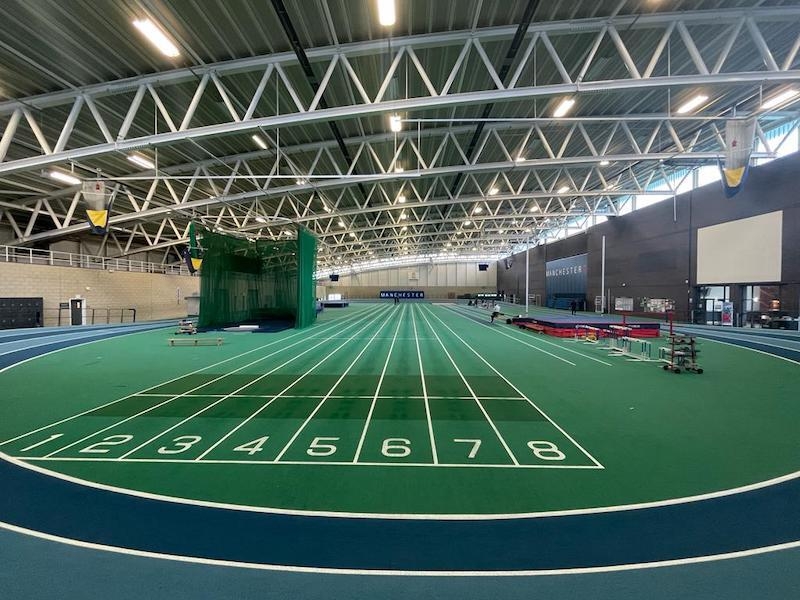
So they did. Under the instruction of then council Chief Executive, Howard Bernstein, Eamonn went about speaking to sport governing bodies in the UK. He was under strict instruction to ask three questions: Do you want to come to Manchester for your home? Do you want to invest in sports development? Do you want to enter into major world events in the future?
All governing bodies in the UK were approached and the product of those consultations was sports like taekwondo, cycling, squash and lacrosse all setting up their homes in Manchester. With the governing bodies came the investment. With the investment came the events. With the events has come success nationally and internationally. Manchester’s velodrome a metaphorical gold mine.
Although European and world events happened every year in Manchester, in 2008 the city hosted nine in one year, a sporting calendar with an impact almost as big as the games themselves. Eamonn points out that much of the investment which has fed down into local sports development has come after the games and that was part of the strategy. The games acted as a springboard.
“That was always our objective. The people side.” Eamonn adds.

He cites summer Olympic games in Los Angeles (1984) and Barcelona (1992) as inspirations for Manchester 2002, with both cities using the opportunity to regenerate areas but also make the most of current facilities rather than building “white elephants”. The sort of needless infrastructure that amasses in online galleries of decrepit, abandoned swimming pools and running tracks.
Nothing was built in 2002 that wasn’t going to be used afterwards.
“You look at our velodrome,” he says. “It’s the busiest in the world. Starts at 7am, finishes at 11pm. It’s got Paralympic teams, national teams, it’s got over 50s, it’s got juniors.”
“The momentum after the games needs investment. It has to have a dedicated strategy to maximise the momentum of the event. Volunteers, what’re they doing next? Young people involved, what sport can they get into? Because it just doesn’t happen unless you support that. Not for one year but for 20 years. It’s got to continue and it’s got to be built in from the start.”
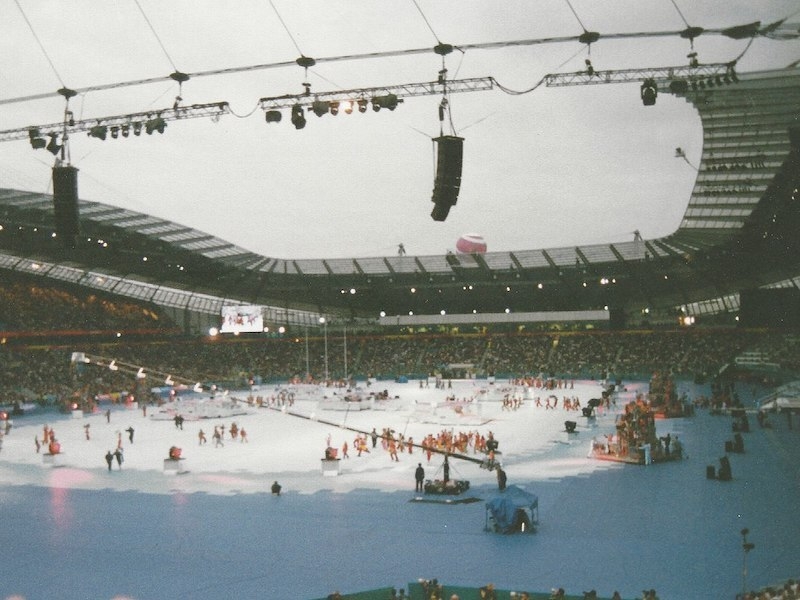
Double-decker buses, opening ceremonies and a way marker for British cities
“It was probably the most remarkable, internationally-based celebration the city has ever had.”
Manchester Confidential’s editor-at-large, Jonathan Schofield says, having attended many of the events in 2002.
“It was very well organised despite the city being nowhere near as transformed as it is now. The trams hadn’t been built yet so there were just loads of double-decker buses. Hundreds of them. All running like clockwork.” Jonathan adds.
“It was a multi-sports event where you saw sports you never thought you’d see. I remember nipping into the gymnastics expecting to be a bit bored and coming away thinking: How have they just done that?”
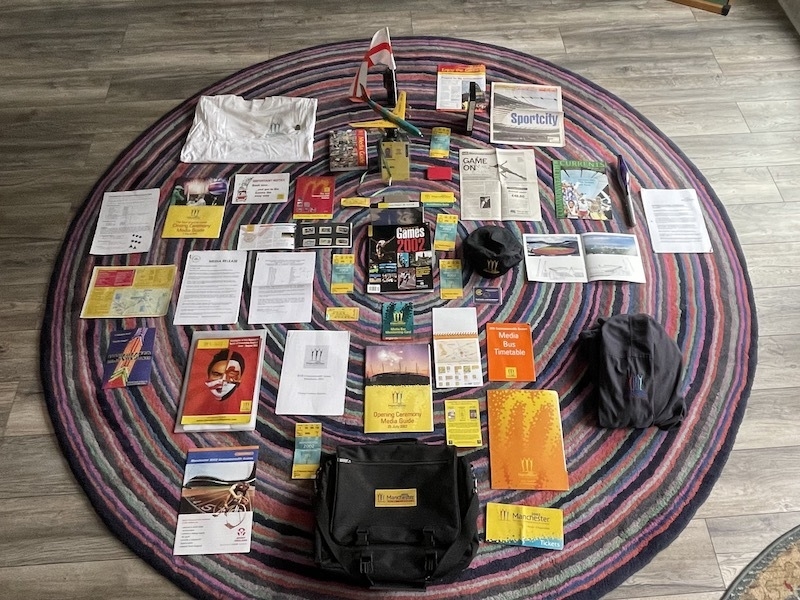
“I remember the opening ceremony being very funny. That definitely set the scene for London 2012. It was self-deprecating, a bit silly. Coronation Street, David Beckham, umbrellas, all the rest of it. Although the opening few days were boiling hot, during the closing ceremony it absolutely bucketed it down. Torrential rain as the poor bloke from Melbourne [the next host city] was taking the torch.”
“It was part of that process of where instead of being a city - certainly in the central areas - of decline, it showed that Manchester was regaining its energy, its positivity. It showed that the city council, instead of doing everything themselves, combined well with local and national business, delivering lots of stuff in the city through partnerships.” Jonathan says.
“It was a way marker for other British cities too. Giving them the motivation to compete with Manchester.”
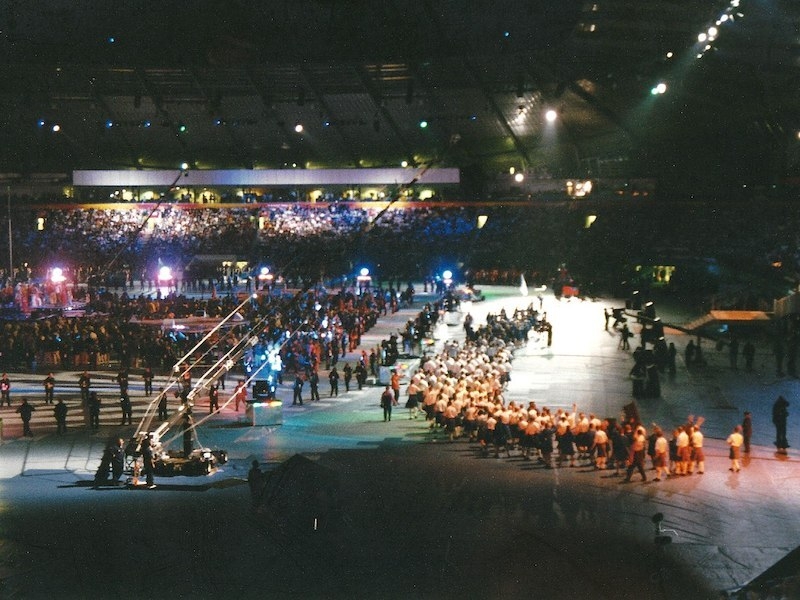
Royal typos, Jonah Lomu and facing the challenges
“The Commonwealth games, in some respect - Manchester having gone for the summer Olympics twice - could have been viewed as the commiseration prize.” Tony Hill, former Head of Marketing at Manchester 2002, tells me when considering the challenges Manchester faced hosting the games.
Whilst the BBC was essentially bolted on for coverage, relationships with broadcasters worldwide were a challenge to overcome. As was encouraging all boroughs of Manchester to get involved with the games so that it wasn’t just a city centre or East Manchester-centric event. As Tony puts it, there were lots of "doubting Thomases", both across the country and closer to home.
Shoestring finances were also a challenge to overcome. “I’ll coin an advertising term used by a colleague years before. You had to be the smart dime against the dumb dollar.” Tony says. “You were having to do in essence guerrilla marketing.” Signs were put up on Bruntwood Buildings and the G-Mex. “We were dressing the city because that was cheaper than paid-for advertising.”
This guerrilla advertising often doubled up as handy window-dressing, covering up some of the shabbier buildings at the time that were awaiting a rejuvenating touch. One such banner on the side of the Granada building was signed by New Zealand rugby legend Jonah Lomu himself.
“He was a lovely guy in every way. Not just with the team but out on the street. One of the days a disabled lady spotted him on the street and he went over and chatted to her. His manager was sort of saying, Jonah, we need to be somewhere else and he just brushed him off and carried on talking to the lady. He was the ultimate gentle giant.” Tony says.
Fun fact: there’s a pretty glaring typo in one of the opening pages of the official 2002 Commonwealth Games programme on Susan Woodward’s page.
The typo said ‘Commmonwealth’ and resulted in Tony having to spend the rest of the night with the print director of the company who printed the programme. The two sorted 100 copies for Sue Woodward’s private box so that entertainment royalty and royal royalty alike were none the wiser.
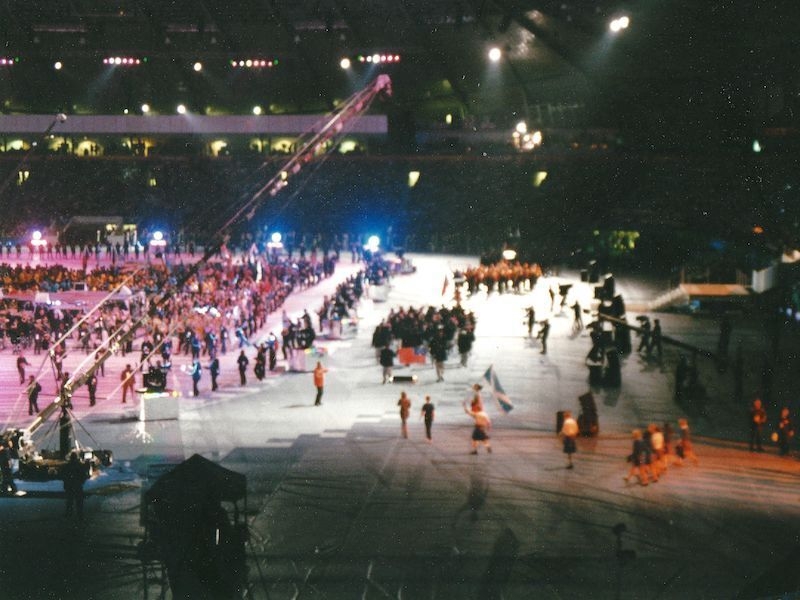
Tony Wilson inquisitions, the second Hacienda and changing perceptions
“I think first and foremost it kind of became the second Hacienda.” Tony says, when asked about the legacy of the Commonwealth Games.
“The Hacienda had positioned Manchester as the music capital and at the time of getting the games, Eastlands had the Sports City moniker, but what really happened there was Manchester became more than just Manchester United.”
“We’d done lots of research and when you’d go to the Commonwealth and ask what Manchester means, they’d say Manchester United and Coronation Street.” Tony feels the games did a lot to move beyond that perception and secure the next stage of Manchester’s development, with notable support from within Manchester circles also helping.
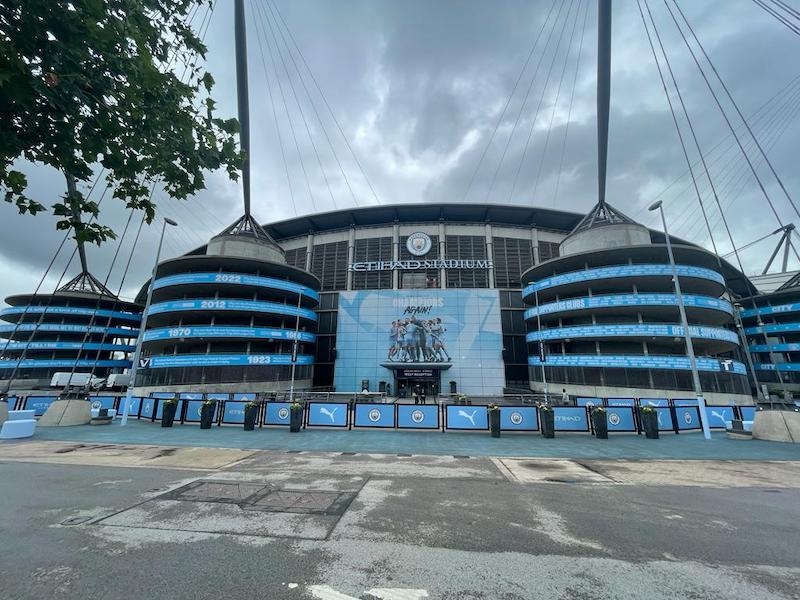
“One of those who was a wonderful aide and mentor was Tony Wilson. I met him on the first night of being appointed in my role at the Friends of the Games meeting and I didn’t know him from Adam. This guy with a suit and sandals on. No cufflinks and his toenails were painted black.” Tony says. “He sat next to me and said ‘who are you?’”
“I’m Tony Hill, Head of Marketing. I told him.”
“He said, what gives you the right to do that?”
“I had a pen in my hand, which was a Nike pen and I said oh, well I’m the former Head of Advertising for Nike in the UK.”
“And he went: That’ll do for me.”
“[Tony Wilson] helped me with his ability to cajole and bring together different parties so that we could build a brand from scratch.”
“It was that affirmation at a point where you needed people to support you and people who could make other people line up to be supporters too.”
Tony Hill describes the realisation of the end of the project on 5 August as almost like a bereavement.
“You went through every emotion with the games and it explains why every games has its heart attacks, divorces, affairs, breakdowns. The phones, which didn’t stop, all of a sudden went silent. It felt akin to PTSD.”
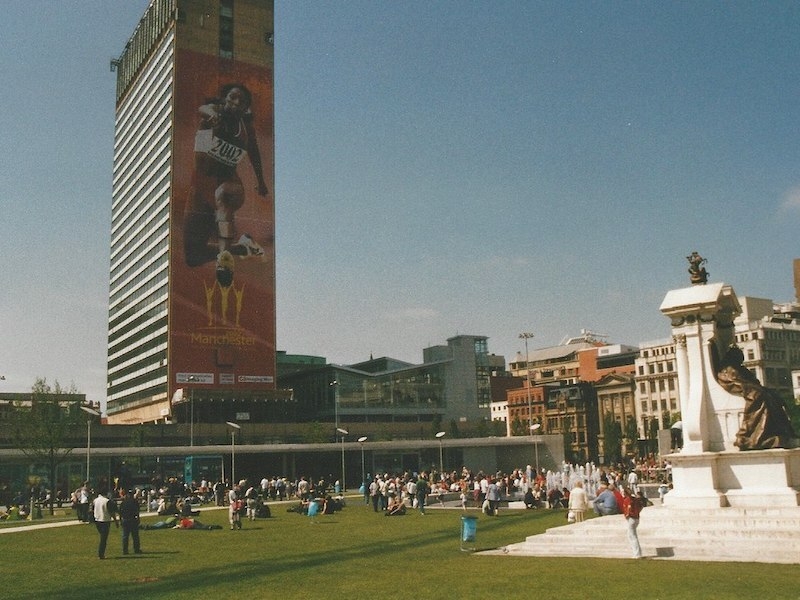
Manchester, a model for the rest of the world
We all know how the story ends. The closing ceremony capped off the Commonwealth Games in true Manc style with biblical rainfall and a shared realisation that the city had nailed it. Manchester and the surrounding area benefitted from £600 million in public and private investment, with several hundred local businesses pocketing a total of £22 million from the planning and preparation of the games.
Commercial income was £4 million greater than projected in 2000, with ticket sales (tickets were priced affordably priced at roughly £10 each) and TV rights better than anticipated. Stadia was full for 90% of the events and TV audiences were recorded at over a billion.
Manchester now had £135 million’s worth of National Lottery-funded sports facilities and Manchester City had a future home that would pay out back to the council. (Sheikh Mansour would belatedly make bank off Manchester City’s move but that’s a story for another day.)
All of the early financial pant shitting, mostly in Whitehall, had also been forgotten as had the unfair labelling of “the lame games” and suggestions that Manchester was out of its depth whilst pickpocketing the taxpayer. The Millenium Dome, Wembley Stadium’s painful birth, withdrawal from the 2005 World Athletics Championships, Picketts Lock, Edinburgh 1986 - all forgotten thanks to Manchester 2002.
The event’s army of trained volunteers received praise from all angles too, most notably then IOC member and chairman of the British Olympic Association, Craig Reedie.
“The efficient use of the fine facilities and, above all, the friendliness of the 9,000 volunteers and the armies of workers have made Britain respected again in international sport.”
Manchester. We did things differently here and it worked. Birmingham take note.
Follow Davey on Twitter and Instagram: @dbretteats
Cover image: Alisdair W / Wikicommons





